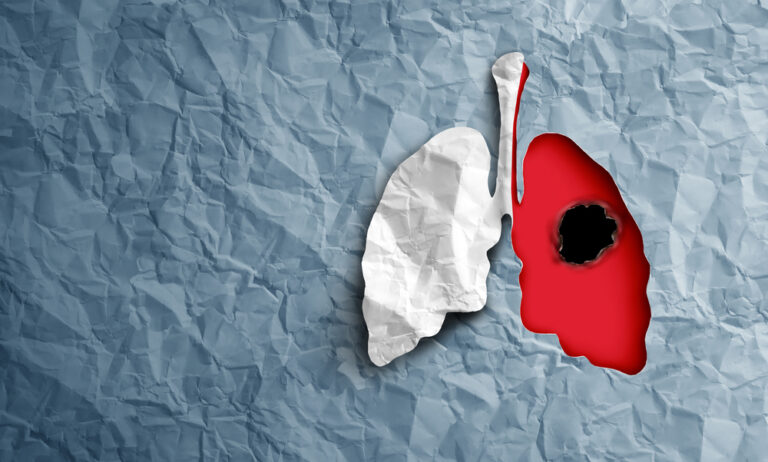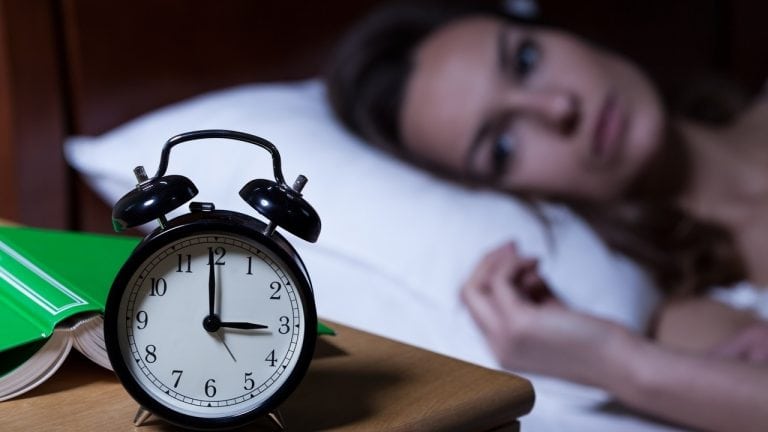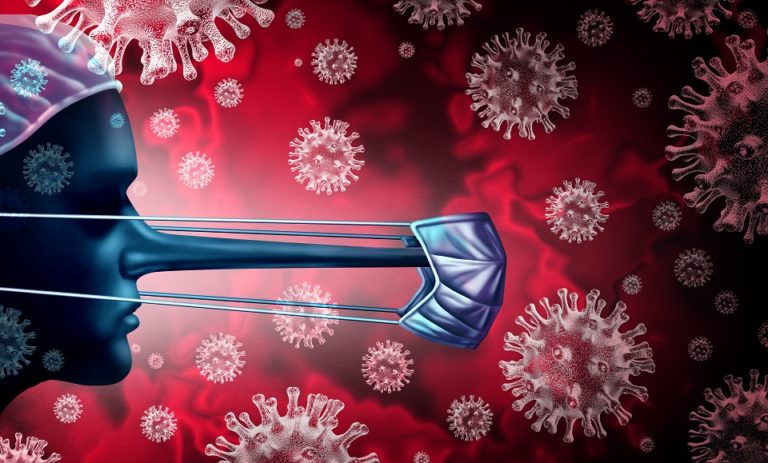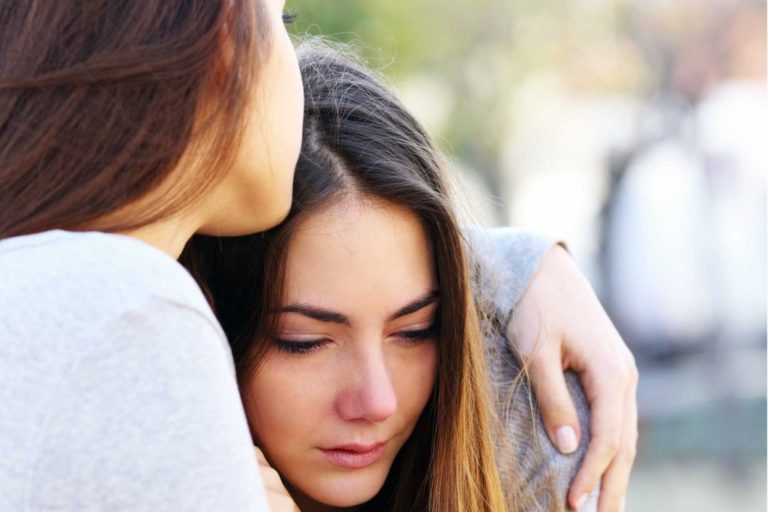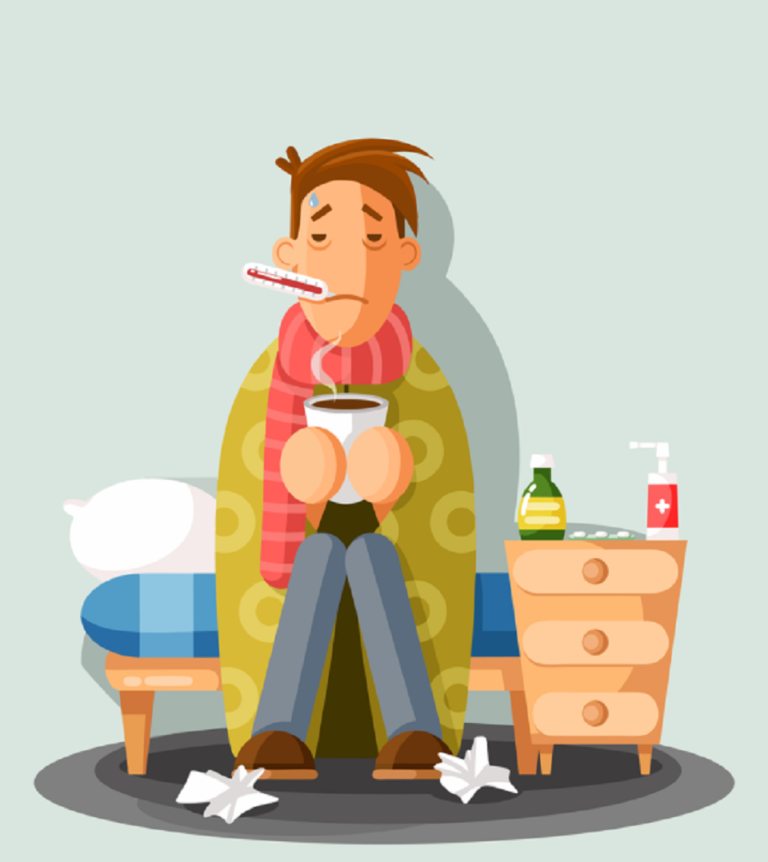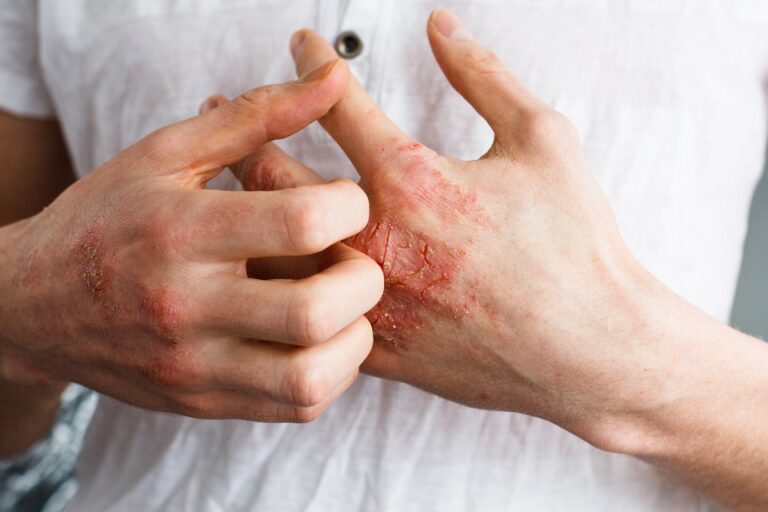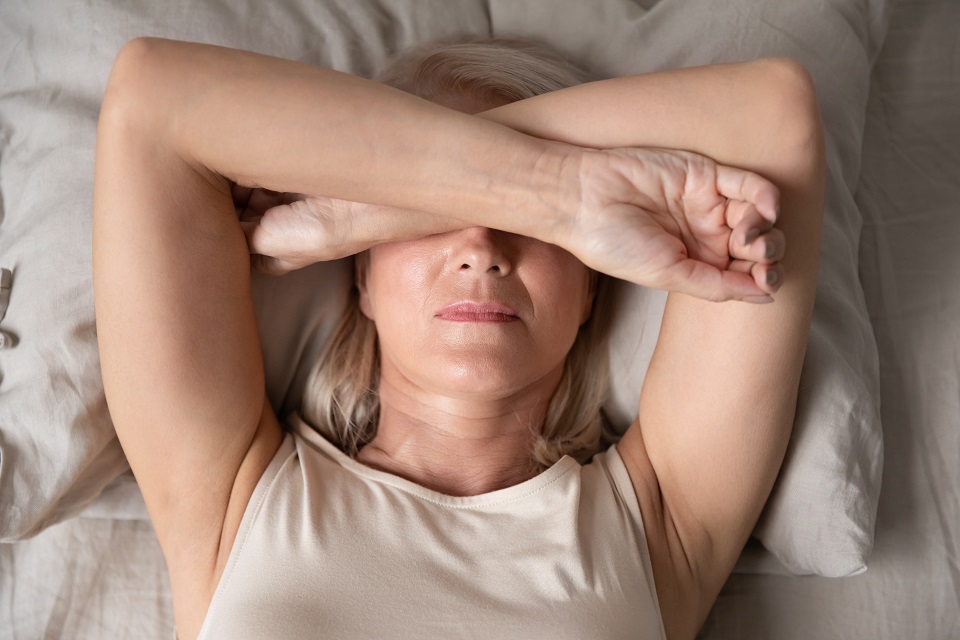
9. Menopause
Menopause comes with hormonal, physical, and psychological changes for women. “From peri-menopause (or transition phase) to post-menopause, women report the most sleeping problems,” reports the National Sleep Foundation (NSF). These symptoms include hot flushes, mood disorders, insomnia, and sleep-disordered breathing.
Treatment with estrogen (estrogen replacement therapy, ERT) or with estrogen and progesterone (hormone replacement therapy, HRT) have been found to help ease menopausal symptoms, reports the NSF. These do carry some side effects, however, so you could opt for acupuncture or mind-body techniques.



